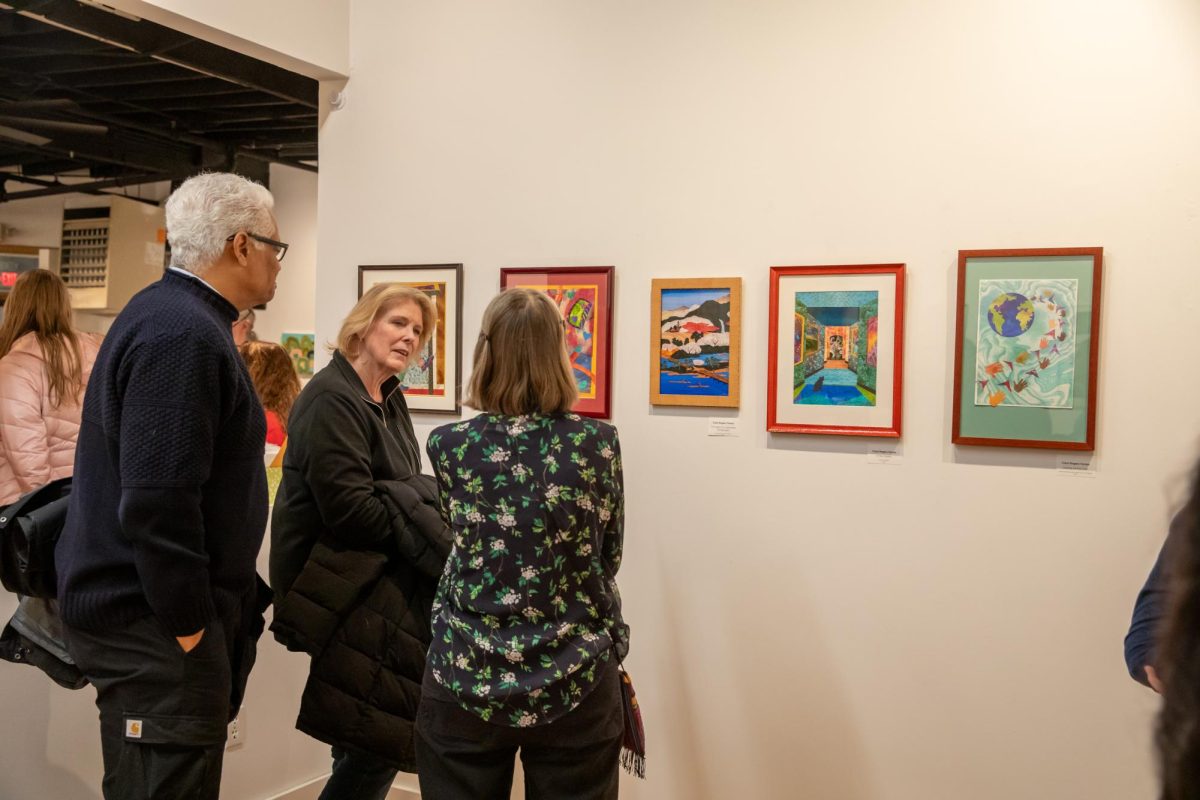Who: Nicole Krauss
What: Talking Volumes with MPRâÄôs Kerri Miller
Where: The Fitzgerald Theater
When: Oct. 28th
Cost: Sold out
When she was younger, Nicole Krauss travelled with family to London, Jerusalem and New York, settling southeast of San Francisco at Stanford University for her undergraduate degree.
âÄúI havenâÄôt really seen a lot of the United States,âÄù Krauss said, âÄú[But] itâÄôs actually helped in my writing.âÄù
The unfamiliarity with her home country would prove to be an asset, indeed. Scenes from Europe and her now-home base, Brooklyn, have been compiled into her three major novels since 2002.
Poetry was her forte to begin with, though. She had been writing and publishing within the genre throughout high school and college and was known to operate comfortably in that style. Then, suddenly, she felt stuck.
âÄúI realized that I needed to take a break from poetry because I wasnâÄôt coming up with any new ideas, and I wasnâÄôt getting what I wanted out of it. I turned to the novel as just a sort of writing exercise to get things flowing, and then I ended up really liking it,âÄù said Krauss.
What emerged from this creative block was âÄúMan Walks into a Room,âÄù sparking considerable interest in her work in the fiction-writing world. Interweaving solitary, semi-autobiographical accounts with intimate insights and meditative soliloquizing, the book launched her now-recognizable style.
âÄúAlmost all of [my stories] are personal to me in one way or another. A great majority of these things have been either told to me, or IâÄôve had a personal experience with them,âÄù Krauss said.
âÄúThe History of LoveâÄù came soon after, accelerating her acclaim and creating an aura of excellence.
Using the same style, as well as familial experiences abroad, the writer integrated scenes that can hardly be called fiction. The details surrounding Leo Gursky and Alma Singer are so startlingly precise that itâÄôs almost disappointing to hear that Krauss is nowhere near admitting itâÄôs a nonfiction work.
âÄúKeep in mind that a good majority of these things are imaginary. I do incorporate details, but only to enrich the story,âÄù Krauss explained. âÄúCreating these works is an imaginative process, and the only fact-checking I do is when I make sure to use the correct dates and if IâÄôm revising and need to look up a street name.âÄù
Her newest, âÄúGreat House,âÄù maintains the focus on historical artifacts and the entwined entities attached to them. The nucleus of âÄúGreat HouseâÄù is a desk, holding within it the links to connect otherwise-unfamiliar characters. A novel behaves as the centerpiece of âÄúThe History of Love,âÄù operating under the same function.
Recently named one of The New YorkerâÄôs âÄú20 Under 40âÄù and now a finalist in the 2010 âÄúNational Book AwardâÄù for fiction, Krauss is likely to reverberate within the literary sphere in perpetuum with the talent she holds.
The sorrowful evolution of missed connections, found truths and the realization of fulfillment based on informational lack within âÄúGreat HouseâÄù is staggering. Undulating waves of lamentation may crash upon the reader, but knowing it is partly fiction may provide relief. And despite the heaviness of it, you can at least fawn over KraussâÄô incomparable prose.







